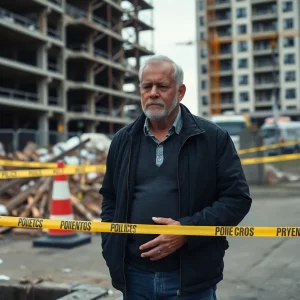Kim Wilson: Shaping the Future of Atlanta, One Trail Segment at a Time
Atlanta, GA – At the helm of Atlanta’s most transformative urban redevelopment project, Kim Wilson stands as a force in the City’s design and construction field. As the Atlanta BeltLine’s Vice President of Design and Construction, she drives the mission to transform the historic 22-mile railway corridor into a vibrant network of trails, greenspaces, and a foundation for future transit.
Leading the BeltLine Team
Wilson’s passion for the project isn’t simply as an executive; it’s deeply personal. “I have an exceptional team at the BeltLine,” she says. “I’m just the point of the spear.” This spear, a blend of determination and strategic prowess, is pushing the BeltLine towards an ambitious milestone: achieving 85% completion or being under construction by the end of 2024.
Preserving Space for Future Transit
Streamlining future transit implementation along the BeltLine corridor, Wilson’s focus extends beyond simply creating space. She shares that wherever possible, they preserve space for future transit and proactively prepare infrastructure. “We are completely rebuilding the bridge foundations at United Avenue to accommodate both the trail and transit.”
Determined to Make a Difference
Wilson’s drive for meaningful impact motivated her decision to join the BeltLine. Previously honing her expertise at Georgia Tech, her role changed direction when she faced personal health challenges diagnosed with kidney disease. “I wanted to do something really meaningful that would make a difference in the world,” says Kim.
Marrying Structure with Tenacity
Her leadership style is a critical foundation—“bringing structure and organization to a team, which is crucial for a project as complex as the BeltLine.” Yet, she marries this with tenacity: “I’m going to deliver it. I’m very mission-driven, and this is a project with a very clear mission: a 22-mile loop before 2030.”
Reshaping Atlanta
But it isn’t just about trails and infrastructure; Wilson sees the BeltLine reshaping Atlanta itself. Her emphasis on Disadvantaged Business Enterprises (DBEs) speaks to a desire for inclusive economic impact. “I’ve also become extremely passionate about [DBEs], making sure that the money coming from the community is going back into the community…”
Working in a Male-dominated field
Despite existing in a male-dominated field, she regards supportive male mentors and colleagues highly. “I’ve never not been treated as a peer and an equal by the men I worked with,” Wilson reflects.
Realities and Challenges of Being a Working Parent
She acknowledges the real challenges of balancing work and family within a demanding profession. “Construction as a profession is very difficult for parents – whether they’re female or male. Sometimes you’re on-site six days a week, or hours from your house. The industry requires long hours,” she explains.
Concluding Thoughts
As the finish line of this legacy project comes into focus, Wilson reflectively comments: “When I came on board, I couldn’t see the finish. But now, the path, the pieces, the right team in place, the funding… it’s all coming together.” This statement reflects her foresight, resilience, and commitment to creating an inclusive space that shapes the future of Atlanta, one trail segment at a time.







